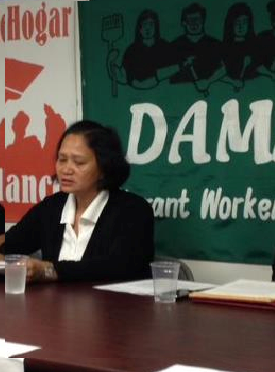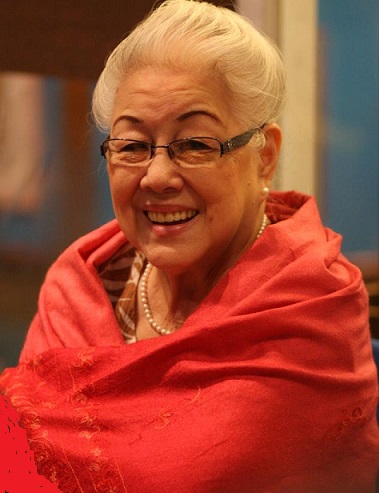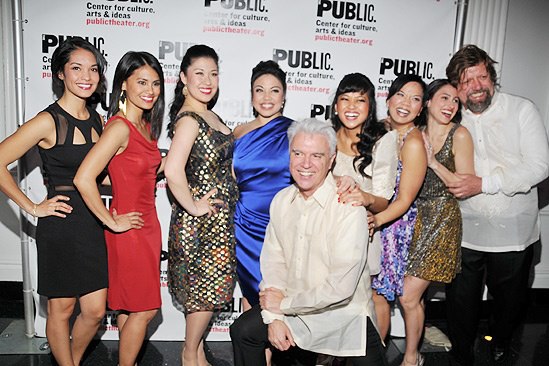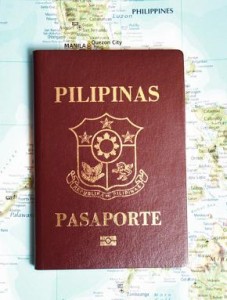Passports are the ‘heart’ of consular service: ConGen Mario de Leon Jr.
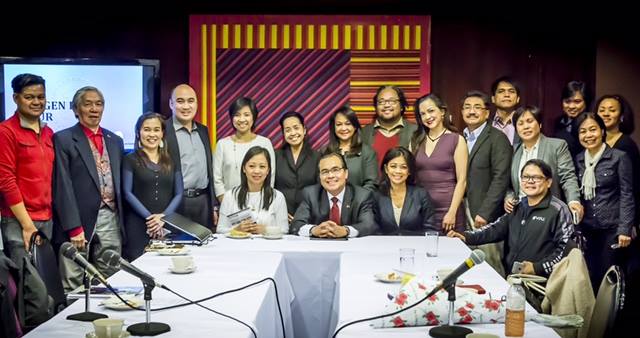
Consul General Mario de Leon Jr. with members of the Press Club, consular officers, and guests. Photo by Rolan Gutierrez
By Cristina DC Pastor
Did you know that if you are a person with disability you do not have to wait in line for your passport application?
You can “jump the line,” according to Consul General Mario de Leon Jr., in a press briefing with members of the Filipino American Press Club of New York or FAPCNY.
The consulate has opened a “courtesy lane” to minimize the inconvenience for the elderly and for people with disability waiting for their passports to be reviewed.
“They can’t stay long in the line, they can jump the queue for an express release of their documents,” said De Leon during the ConGen’s Press Hour.
Passport processing is the “heart of the operations” of the consulate, he said. An average of 50 to 60 passports are processed on a regular day. On peak days, the number can go up to about 140.
Passports usually take up to 10 weeks to process because they are shipped to the Philippines where they are printed and enhanced with security features.
“The turnaround time is a little slower because the passports are sent to Manila, and it takes 10 weeks for printing,” De Leon said.
In certain instances, however, the processing time for passport applications can be shortened. In case of deaths or medical emergencies, the consulate can “offer short-term remedy.” If someone loses a passport, the consulate can issue a travel document. This will allow the applicant to go home to the Philippines, but this may not be honored in certain countries, said the consul general.
Mondays and Fridays are days to be avoided in filing passport applications.
“Most kababayan file their applications (during those days),” he said by way of offering a ‘tip.’ “Mondays and Fridays and days before and after the holidays are peak days. Avoid these days if you want to stay in the Consulate shorter.”
De Leon stressed that a passport should be valid for travel at least six months before it lapses. A passport that has less than six months’ validity will not be accepted as a travel document.
Another consular service some Filipinos may not be familiar with is the ‘civil registry.’
The births and deaths of Filipinos in the 10 states should be reported to the consulate to establish an archival record, said De Leon. The consulate has jurisdiction over the states of Connecticut, Delaware, Maine, Massachusetts, New Hampshire, New Jersey, New York, Pennsylvania, Rhode Island, and Vermont.
He said marriages resulting in a Filipino woman acquiring a new name must also be reported. He said a different name can sometimes lead to confusion and delays in passport processing.
Asked how many Filipinos are in the U.S., De Leon said the consulate uses the official U.S. Census data which puts the Filipino population at 3.4 million. Ten percent of that – or 340,000 — lives in the northeast which is under his jurisdiction.
He said no one really knows the number of undocumented Filipinos, and “it is all a matter of guesstimate.”



